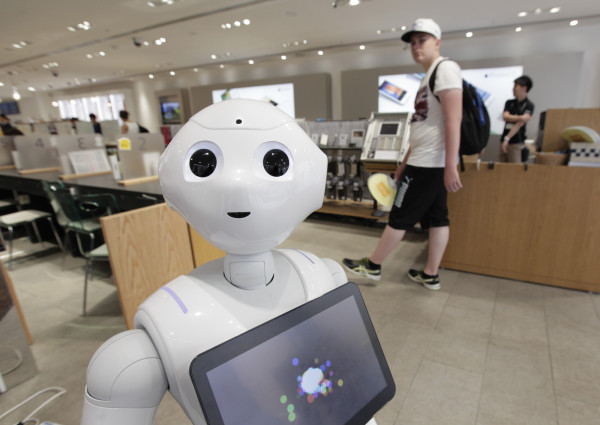
Article 2 / 5
Investing in equity: Specialist sectorsTechnology: Learning to apply AI in the investment world

Artificial Intelligence (AI) is everywhere, bringing excitement and disruption to everyday life. There remain concerns about the impact on society, but what does this mean for global investors? And what are the investment opportunities and the threats it presents?
AI is nothing new – it involves an attempt to teach machines to think like humans. Progress has been spectacular and AI-based face and voice recognition are comparable with human performance. Many industries see potential in understanding their data better, and if AI can help identify patterns and make better, faster decisions, it could save costs.
The success of AI learning depends on two factors: a high-quality data set and an ability to quickly crunch the data and ‘learn’.
The rapid development of data storage technology, coupled with growth in the volume of data generated and stored worldwide, has created great data sets for machine learning. The relentless increase in computing performance has made for faster learning, with the lucky convergence of these two trends enabling spectacular progress.
But this also points to where opportunities might occur. You want great data sets, where machines can learn to identify useful patterns and trends, and you want hardware and software technologies, which enable machines to store and manipulate large quantities of data and to learn faster.
This development has opened the door to new opportunities for innovators, such as US semiconductor firm NVidia. Its original business was graphics processors, creating powerful semiconductors that accelerated 3D graphics – particularly popular with video game enthusiasts.
It turns out that the task of machine learning is very similar to enabling 3D, and NVidia chips are now enablers of such systems. Sales have increased and the company’s share price has surged more than eightfold in the past three years.
Despite this rapid progress, we are still in the early days of AI growth. If it can assist companies to identify valuable data patterns and help business decisions, there is more incentive to capture and store data. US industrial conglomerate GE has said that its next-generation jet engines will produce up to 500 gigabytes of data per flight compared with 3 kilobytes previously.
UK supermarket chain Tesco talks about every part of its retail infrastructure, from trolleys to tills to shelves, being enabled to generate and store data. This could be good news for the semiconductor industry, as demand for memory chips produced by companies such as Samsung Electronics is already robust and growing. These trends can help sustain this demand.
Companies that own great data sets should also be able to benefit from their asset. Google and Facebook have huge amounts of user data and are actively investing in AI.
Opportunities can be just as promising in more specialist niches such as healthcare. US health insurance company United Health has one of the largest data sets in the industry, monitoring the health data of tens of millions of patients, from drug prescriptions to hospital visits. It is working on detecting early changes in its customers’ health using AI. Management talks excitedly about being able to predict diabetes long before it develops, and intervene early to help its customers to manage or prevent the disease.
AI can also be a threat. Algorithms are already effective at answering simple IT questions, providing customer helpdesk support, and even reviewing basic legal documents. These tasks are currently performed by IT services and business process outsourcing firms, but it will put pressure on these companies to shift towards more value-added services.
The speed of AI progress has been spectacular. It is too early to tell what the full impact on industries and societies will be, but it has clearly created a lot of value already and presents real and material opportunities. A conversation about AI strategy should be an important part o
Mikhail Zverev is head of global equities at Standard Life Investments



